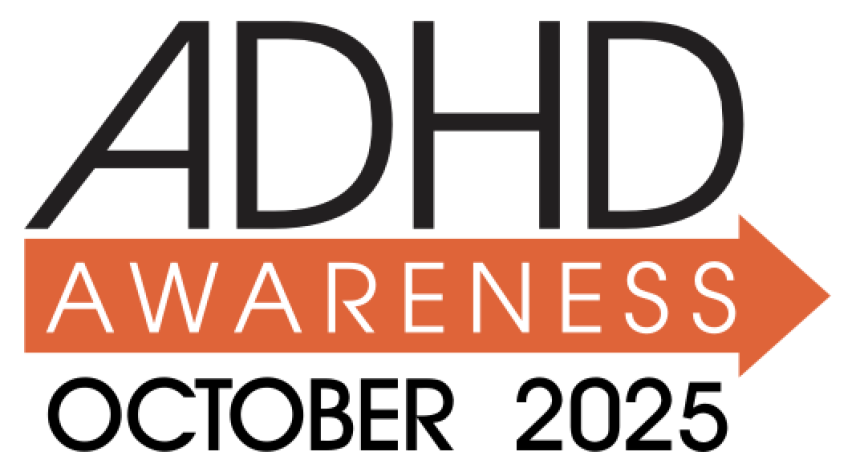
As October’s ADHD Awareness Month begins, UK debt help charity Christians Against Poverty (CAP) is warning that banks and benefits systems are still failing to recognise the realities of neurodivergence, pushing millions into debt and long-term hardship.
Everyday tasks like filling in complex forms, opening confusing debt letters or coping with sudden income changes can be overwhelming for people living with ADHD, autism or other neurodivergent conditions. Without the right face-to-face support, these challenges can trigger a downward spiral where poor mental health and debt feed each other.
The hidden cost of neurodivergence
CAP’s 2025 Client Report shows 65% of new clients need in-depth, face-to-face help because of complex needs. Research also highlights the extra financial strain facing neurodivergent people:
- People with ADHD have difficulties with financial judgment, especially with the ability to understand information that is relevant to a financial situation or transaction, which can result in serious financial problems. (Koerts et al, 2021)
- Young adults with ADHD face significant financial disadvantages compared to those without ADHD. They earn about 25% less per month, experience more frequent money problems, and typically have 50% less money in savings. (Altzuler et al, 2016)
- 11% of adults with ADHD turn to payday loans (Newton, 2023).
- People with ADHD spend an estimated £1,600 more each year on unnecessary financial charges (Perfectly Autistic, 2023).
- Adults with ADHD are more likely to rely on benefits or government support (11.2% vs 1.5%) (Altzuler et al, 2016)
- ADHD affects an estimated 3–4% of adults in the UK (NHS ADHD Research Programme). Many more live with neurodivergent conditions such as dyslexia and autism.
- Financial stress makes ADHD symptoms worse, trapping people in a cycle of debt and anxiety.
Lucy’s story
Lucy, 36, from Manchester, graduated into the 2008 financial crisis and spent years juggling insecure jobs and ill-health before receiving diagnoses of ADHD and autism.
“My entire adult life has been shaped by debt and money worries in a world that is increasingly expensive to live in. I’d often throw money at problems or spend impulsively, and the stress fed my anxiety and depression. In the end, I couldn’t afford my rent or minimum payments. I felt so ashamed of my debt, I couldn’t sleep or eat. I hadn’t opened my post in months because I couldn’t bear the red letters. I felt I’d failed.”
With non-judgmental debt coaching from CAP, Lucy followed a personalised repayment plan. Today, she is debt-free, with her confidence rebuilt and her mental health back on steadier ground.
“If I hadn’t had CAP, I’m honestly not sure where I’d be today. It gave me confidence to deal with money, it gave me strength and pride back and took away my fear.”
Professor Amanda Kirby, ADHD expert, says: “Many people face challenges managing their money, such as understanding complex terms, completing forms, or sticking to a budget. These challenges can be even more pronounced for people with neurodivergent conditions like ADHD or dyslexia. It is essential that financial services are genuinely inclusive – clearly outlining risks and providing tailored support.”
Kiri Adams, Head of Policy & Public Affairs at CAP, says: “Neurodivergence can contribute to unique financial challenges, including difficulty managing money, understanding very complex debt letters, or sustaining steady employment. We need joined-up action to help break the relationship between debt and neurodivergence.”
How we can act
CAP is calling for:
- Increased funding for face-to-face debt help services.
- An Essentials Guarantee so benefits always cover the cost of food, energy and everyday living.
- Co-design of financial products and services with neurodivergent people.
- Integrated pathways linking health, education, social care and free money coaching support.
CAP’s response
CAP is launching a new appeal to strengthen its face-to-face debt services across the UK. With over 1,500 trained money coaches, CAP will deliver free money coaching sessions, including step-by-step budgeting guides, tailored support to break down complex information, debt counselling, and tools such as CAP’s benefits calculator.
Graeme McMeekin, CAP’s Chief Mission Officer, says: “We meet clients every week who are overwhelmed by bills and forms. With a CAP Debt Coach alongside them, those challenges become manageable instead of catastrophic.”
